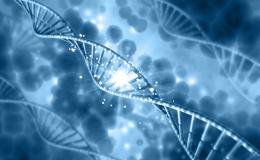3 Reasons to Choose Clinical Genetic Screenings Over Genealogical Testing for Health Information
May 18, 2021
23andMe started offering saliva-based, direct-to-consumer (DTC) genealogical testing all the way back in 2007,1 and the company has never looked back.

AncestryDNA followed with its own DTC test in 2012,2 and the two companies, amongst others, have competed in the DTC hereditary testing market ever since. Both companies offer relatively fast, inexpensive testing designed to unveil each person’s genetic ancestry based on DNA variants, or changes in genes, found throughout the human genome.
More recently, however, both companies started offering consumers the option to have their DNA tested for variants associated with increased disease risk, such as breast and colon cancer, cardiomyopathy, macular degeneration and Parkinson’s disease. While many consumers appreciate the option to learn more about their disease risk, some participants are unprepared for difficult diagnoses3 and others don’t fully understand their test results, their context, or what implications the results have on their future health.
To be clear, genealogical testing is no substitute for clinical genetic screening under the guidance of a physician or other healthcare professional. While the accuracy of many genealogical DNA testing labs is good and often replicated by clinical laboratories, consumers must fully understand their test results in order to make informed health decisions. 23andMe, for example, tests for 3 variants in the BRCA1/BRCA2 genes that are associated with an increased risk of developing breast and other cancers4 when there are over 3,700 variants in the two genes that are known to increase cancer risk.5
One of the primary reasons patients should opt for clinical DNA testing, rather than a DTC genealogical health test, is because clinical DNA screening tests are much more thorough. Genealogical testing companies do a good job of testing a limited number of variants associated with an increased risk of developing disease, but other variants may also exist that increase the likelihood of disease development. Clinical testing, on the other hand, screens entire genes for variants in order to assess genetic risk. This is important because a “negative” breast cancer result from a DTC genealogical health test only means that a person doesn’t harbor one of the few variants the test actually screens for. In other words, the person could still possess any of the thousands of other pathogenic variants that are also associated with an increased risk of developing breast cancer. One of the primary concerns with DTC genealogical health testing is the false sense of security it may provide to participants where no pathogenic variants are found.
Receiving life-altering and often devastating health information from a DTC online portal is not ideal. Clinical DNA testing involves your physician in both the preparation for and results of genetic screening and is another major reason to choose clinical over genealogical testing. Your physician and other clinicians are trained to assess hereditary disease risk, determine which testing is appropriate, and guide you through the entire testing process. In addition, when clinical DNA testing confirms the presence of a pathogenic gene variant, your physician and other experts are there to explain exactly what the results mean for you, your family and your disease risk. Genealogical health test results are typically confirmed by physicians using clinical testing methods before any disease treatment or monitoring occurs.
Lastly, your family health history isn’t a game. While discovering a new cousin or previously unknown ancestral region may be fun and exciting, learning you have an above-average risk of developing Parkinson’s disease isn’t. As we have outlined here, there are a number of factors each person should take into consideration before pursuing DTC genealogical health testing. Kailos Genetics developed the ExpedioTM Hereditary Cancer Screening, a clinical genetic screening test, designed to detect pathogenic variants in over 30 genes associated with an increased risk of developing cancer. Click here to learn more about ExpedioTM, or contact us with any questions you may have regarding genetic screenings.




